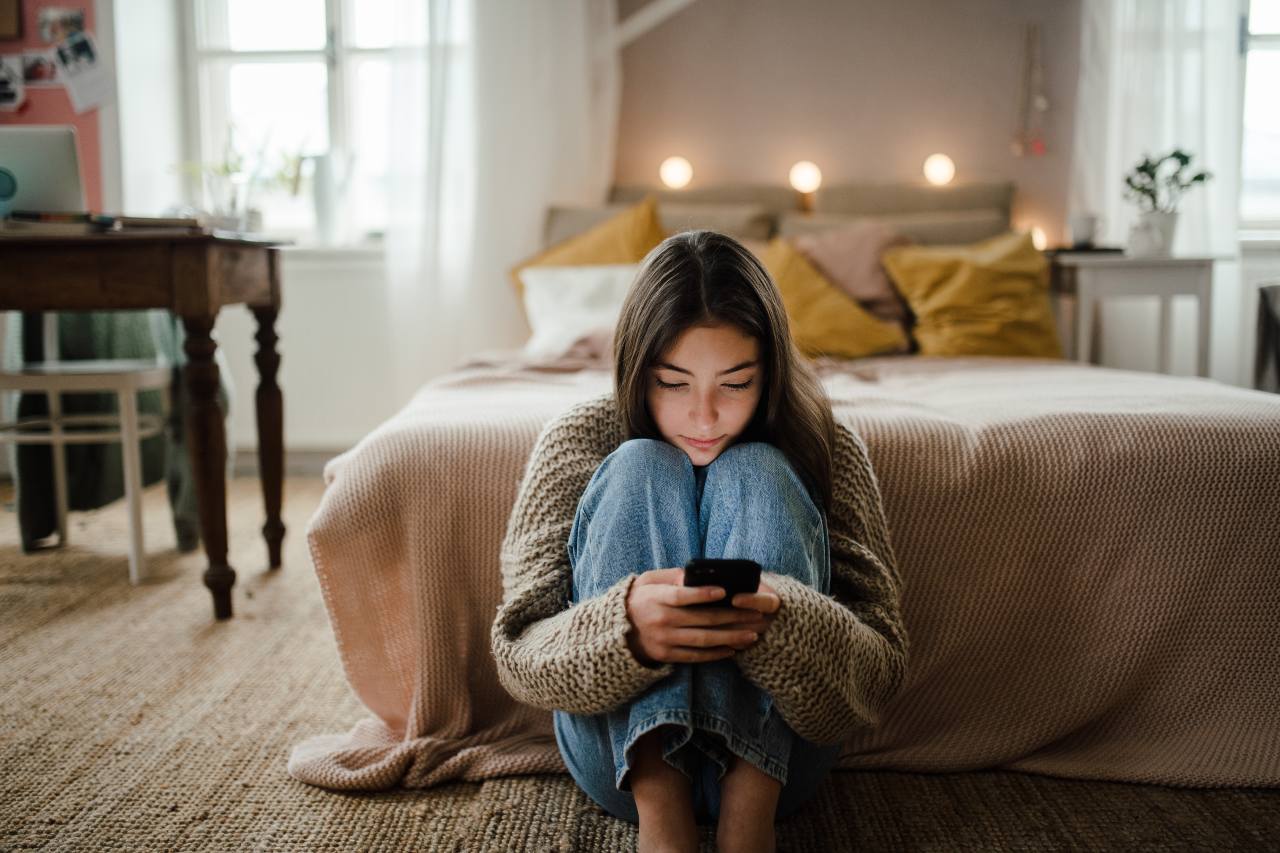If you’ve clicked on this blog post, chances are you’re curious about the surge in anxiety among teenagers in today’s digital age. Well, you’re not alone! Teenage anxiety has become a hot topic, and it’s essential to shed some light on why so many young people are experiencing this overwhelming feeling.
Can you remember the turbulent teenage years of your own? Do you remember the desire to fit in with your peers with the latest and greatest clothing or gadgets? Can you still feel the burning of your cheeks when you had to find a seat in the lunch room? And let’s not forget the pressure to get good grades and do well at sporting events or whatever clubs you were a part of.
The reality is that being a teenager is hard
It always has been. However, with the onslaught of the digital age and new pressures to succeed and fit in, today’s teenage population is facing scrutiny like never before. And these realities don’t seem to be going anywhere.
Perhaps you are a concerned parent or grandparent. Maybe you are a teenager yourself looking for ways to help alleviate crippling anxiety. Whatever the case may be, Innova Primary Care wants you to know that we have your well being in mind. We hope to foster connections and create a trusting and caring space where everyone finds acceptance in who they are and realizes their value.
In this post, we’ll delve into the various factors, with a focus on technology, contributing to teenage anxiety in today’s world. So, grab a cup of tea, sit back, and let’s dive in!

The Digital Age: A Double-Edged Sword
The digital age has revolutionized the way we connect and communicate, opening up vast opportunities. However, it has also introduced new challenges, especially for teenagers. The constant exposure to technology and social media has a significant impact on their mental well-being. While it provides a platform for self-expression and social connection, it also brings forth potential triggers for anxiety.
Social Media and the Culture of Comparison: Social media platforms have become an integral part of teenagers’ lives. They are bombarded with a constant stream of curated content, idealized lifestyles, and edited images. This culture of comparison can lead to feelings of inadequacy and anxiety as teenagers try to measure up to unrealistic standards.
According to a study from the Pew Research Center, ninety-five percent of all teens say that they use YouTube. An astounding sixty-seven percent of all teens surveyed say that TikTok is in their social media pocket as well. Instagram and Snapchat are both used by teens as well with 6 in 10 saying they use these platforms.
Cyberbullying and Online Harassment: The digital age has amplified the impact of bullying. Cyberbullying, where individuals can be targeted 24/7 through social media and messaging apps, has detrimental effects on teenagers’ mental health.
Statistics on cyberbully are alarming with over half of all American teens saying they experienced cyberbullying in 2022. The fear of being ridiculed, excluded, or publicly humiliated leads to anxiety and can have severe consequences.
Fear of Missing Out (FOMO) and Social Validation: social media often creates an illusion of everyone else having a perfect life, filled with exciting events and experiences. Teenagers may experience FOMO, fearing that they are missing out on something important. The constant need for social validation and accumulating likes and followers can fuel anxiety.
Digital Detox and Setting Healthy Boundaries
While technology can contribute to teenage anxiety, it’s essential to remember that it’s not inherently bad. It’s about finding a balance and setting healthy boundaries. Encouraging teenagers to take regular digital detoxes and engage in activities that promote well-being can help reduce anxiety levels.
How can you, as a parent or guardian, help protect the teen you love from the harms of social media and technology? We’ve got some suggestions for you.
Promoting Offline Activities: Encourage teenagers to engage in activities that provide a break from the digital world. This could include spending time outdoors, pursuing hobbies, reading books, or engaging in face-to-face interactions with friends and family.
Mindful Technology Use: Teach teenagers about mindful technology use. Encourage them to set time limits, prioritize real-life connections, and be aware of how certain content or interactions online affect their well-being.
Taking a social media break may send your teenager in tears to their rooms, but the benefits are well worth the battle. Research suggests that taking just one week off can help with depression and anxiety. A break can also improve sleep and increase well being. You don’t have to cut usage out all together to reap the benefits of a social media detox. Here’s something you can try:
1 day a week – 1 week month – 1 month a year
While this system might not work for every family, it is a way to implement a plan of attack without deleting all social media platforms entirely. We suggest you do what you can to start with and see how it goes.
Creating Safe Spaces: Foster open conversations about the impact of technology and social media on mental health. Create safe spaces where teenagers can express their concerns, ask questions, and seek guidance without judgment.
Other Contributing Factors and Coping Strategies
While technology plays a significant role in teenage anxiety, it’s crucial to acknowledge other contributing factors and explore coping strategies. Social media use and technology aren’t the only things driving the rise in anxiety in teenagers.
Academic Pressure and High Expectations: The pressure to excel academically and meet high expectations can be overwhelming. Encourage teenagers to adopt healthy study habits, manage their time effectively, and seek support from teachers and mentors.
Changing Family Dynamics and Support Systems: Changing family dynamics, such as divorce or busy working parents, can leave teenagers feeling disconnected and unsupported. Building strong support systems through open communication and seeking guidance from trusted adults can alleviate anxiety.
Self-Care and Mental Health Awareness: Teach teenagers about self-care practices such as exercise, mindfulness, and adequate sleep. Promote mental health awareness and educate them about available resources, including therapy and counseling.

Love your teen through it all
In conclusion, the digital age has brought both benefits and challenges for teenagers, significantly impacting their mental well-being. While technology and social media can contribute to anxiety, it’s essential to find a balance and set healthy boundaries. Encouraging digital detoxes, promoting offline activities, and fostering open conversations about mental health are crucial steps.
Additionally, addressing academic pressure, changing family dynamics, and promoting self-care and mental health awareness are key in helping teenagers navigate this digital world with reduced anxiety. Together, let’s create a supportive environment where teenagers can thrive, grow, and build resilient, anxiety-free futures.



 About
About About
About

 About
About About
About About
About About
About About
About













